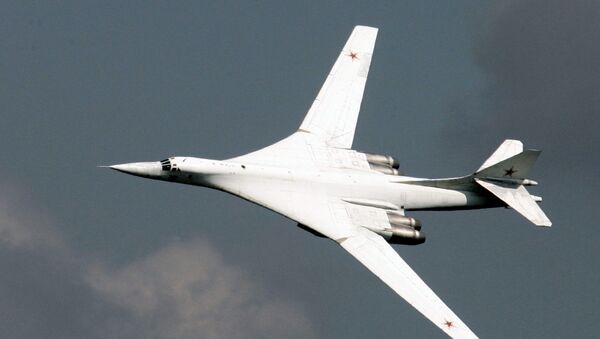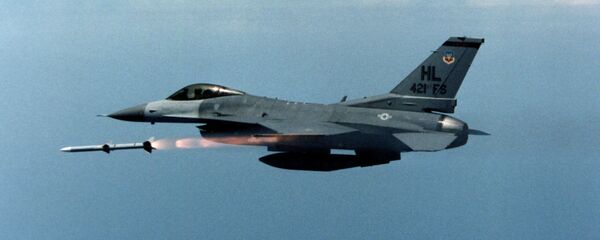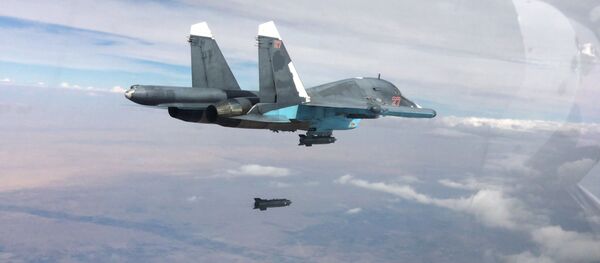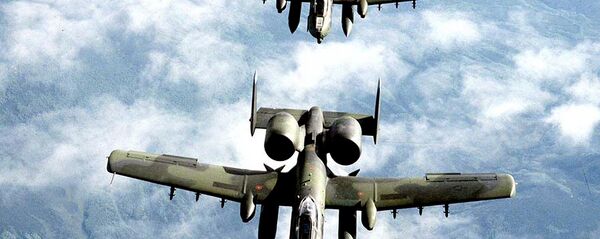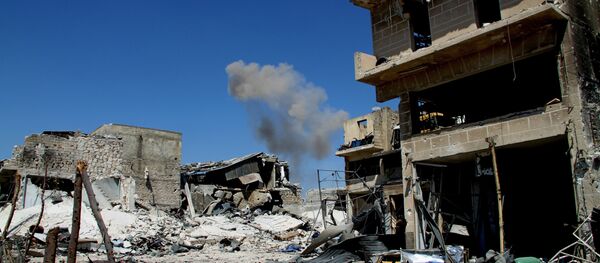MOSCOW/DAMASCUS (Sputnik) — During the campaign, Russia succeeded not only at accomplishing a number of military missions in Syria, inflicting damage on terrorists' infrastructure, creating conditions for a counteroffensive of the Syrian army, but also at strengthening Moscow's international positions.
Despite the fact that Russia's Aerospace Forces had played a crucial role in support of Syria's legitimate government, which is admitted by numerous experts, the final victory over terrorists is an issue of a distant future. At the same time, there is also no progress in political settlement of the crisis: intra-Syria talks have collapsed in April in Geneva when members of the Syrian opposition's High Negotiations Committee (HNC), supported by Saudi Arabia and several western states, walked away from the negotiations citing the failure of the Syrian government to commit to reconciliation process. At the moment it is still not clear if the negotiations are resumed.
Moscow admits the fact that the pace of developments is not fully in line with initial plans for the Russian campaign against the militants of the Daesh and Jabhat Fatah al Sham (previously known as al-Nusra Front) terrorists groups, which are outlawed in many countries, including Russia.
"When we launched the operation and our Aerospace Forces engaged in anti-terror fight, we expected the operation to last only several months. Today we mark the one-year anniversary [of the campaign] and one can still see no end to it," Russian Deputy Foreign Minister Mikhail Bogdanov said.
Partial Success
Russia has been conducting an aerial campaign against terrorists in Syria since September 30, 2015 at President Bashar Assad's request. Russian military aviation had conducted more than 9,000 sorties by March 2016, helping Damascus turn the tide of war and launch offensives in key regions of the country. Russia's Navy, including submarines as well as space reconnaissance assets have also participated in the campaign. The airstrikes have significantly reduced or even stopped terrorists' efforts to sell oil from the occupied territories, destroying hundreds of terrorists' oil facilities and thousands of petroleum carriers.
In March, Russian President Vladimir Putin made a decision to withdraw a major bulk of the Russian forces. At the same time, Russia did not abandon its commitment to provide the Syrian government with weapons and military equipment and train military specialists. The Hmeymim air base and a naval facility in the port of Tartus remain operational while Russia's S-400 and Pantsir air defense systems continue to be on duty in Syria to protect Russian servicemen in the war-torn country.
However, the operation goals have not been fulfilled yet and Daesh, as well as jihadists from other terrorist groups, have not been destroyed in the course of the campaign.
Campaign's Difficulties
The situation around the Russian Aerospace Forces campaign is complicated by several major issues.
On September 9, Russian Foreign Minister Sergei Lavrov and US Secretary of State John Kerry announced a new peace plan to address the conflict in Syria in Geneva. The international community had high hopes for the deal, however the expectations have not yet been fulfilled. The implementation of the agreement was put into question, as the warplanes of the US-led coalition hit Syrian government troops near the eastern city of Deir ez-Zor on September 17, leaving 83 military personnel killed and about 100 wounded. The Pentagon said that the airstrike was a mistake and was meant to target Daesh militants, yet the attack had contributed to the offensive of the jihadists, who attacked government forces right after the coalition airstrikes.
The attack near Deir ez-Zor has raised the issue of coordination between US diplomats and military. Russia criticized the Pentagon, stating that the efforts of both Russian and US foreign services, as well as their presidents, had been derailed by Pentagon's unwillingness — sometimes covert, sometimes overt — to cooperate with Russia.
"Apparently the [US] military does not really listen to the Commander in Chief," Lavrov said commenting on the Pentagon's activities.
Western countries have accused Russia and Syria of the attack. Moscow has refuted the allegations and proposed to carry out an investigation of the incident, but the Russian proposal has not been met with interest by the West. The Russian Defense Ministry, commenting on the attack, said that a US Predator drone operated near Urum al-Kubra area north of Aleppo at the time of the deadly attack and had left the area only a half an hour after it.
The second issue that has a negative impact on the situation in Syria is the absence of progress in the political settlement of the conflict.
Since then the negotiations process has been in limbo. UN Special Envoy for Syria Staffan de Mistura has repeatedly promised that the talks would renew in the near future, but progress has not been made.
Russia has also stressed that Washington's failure to separate the moderate Syrian opposition from terrorists is contributing to the chaos of the war in the Middle Eastern nation. In the September deal, the United States agreed with the need to resist al-Nusra Front militants, but according to Lavrov, Washington does not stand against them in reality. The situation contributed to Russia announcing that it would no longer agree to any unilateral steps aimed at cessation of hostilities in Syria.

